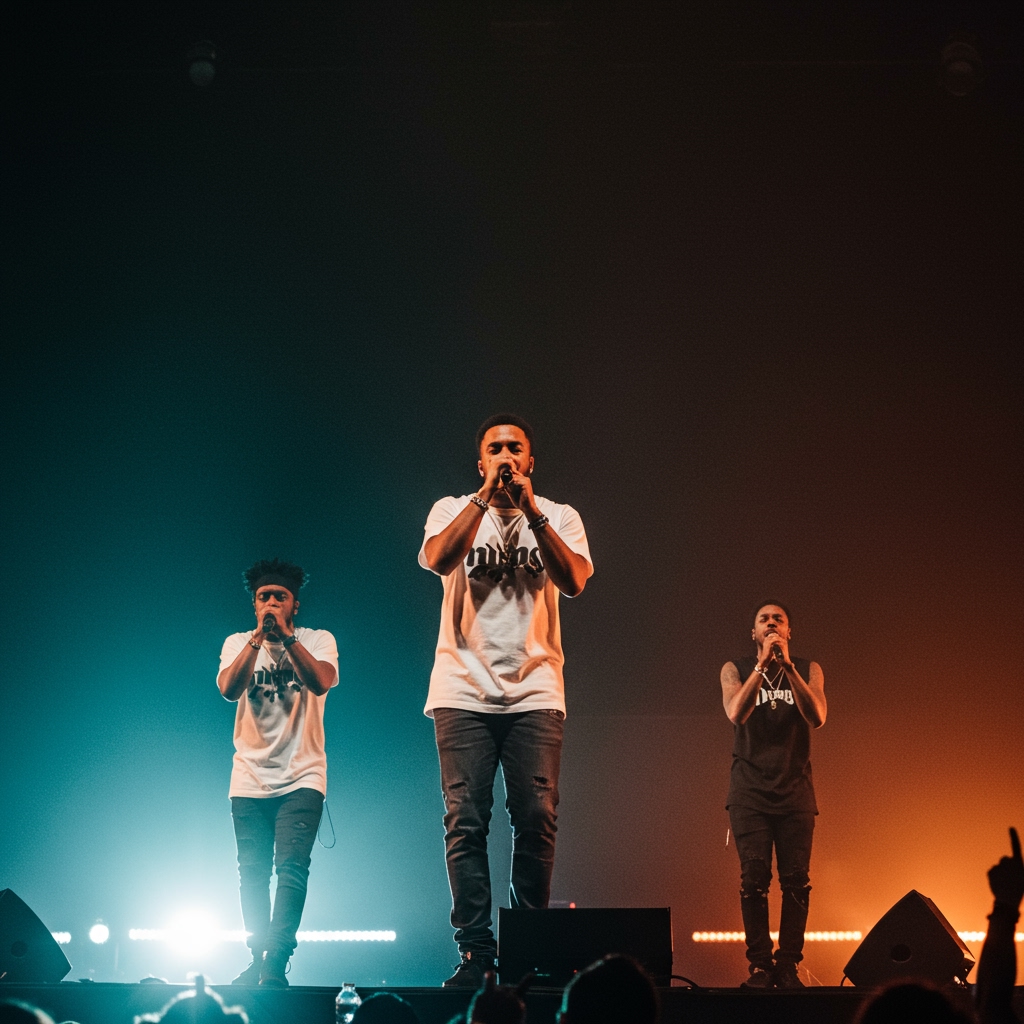INGLEWOOD, California – One year ago, hip-hop artist Kendrick Lamar hosted “The Pop Out: Ken and Friends” concert at the Kia Forum in Inglewood on Juneteenth. What began as a triumphant celebration of West Coast unity has, in retrospect, become a significant cultural marker, prompting reflection on the role of music in capturing the complexities of the current era.
The concert occurred against the backdrop of Lamar’s highly publicised rivalry with fellow artist Drake. This artistic and commercial competition, which intensified significantly in the spring of 2023 through a series of scathing diss tracks exchanged between the two, served as a focal point for broader discussions about authenticity, influence, and the capacity of contemporary artists to truly reflect the turbulent times in which they create.
The Juneteenth Catalyst: “Not Like Us”
Lamar’s performance that night solidified one particular track, “Not Like Us,” as an anthem of the moment. The song, widely interpreted within the context of the rivalry and regional pride, was performed an extraordinary five times during the Juneteenth show, underscoring its immediate resonance with the audience. Its music video, notably released on the Fourth of July, further amplified its cultural footprint. The song’s reach even extended into the political sphere, with Vice President Kamala Harris reportedly playing the track at a rally, illustrating its unexpected crossover appeal and embeddedness in the contemporary landscape.
Chart Dominance Versus Cultural Critique
The differing trajectories and thematic concerns of Lamar and Drake highlight a central tension within the music industry today. Drake boasts undeniable, record-breaking commercial success, evidenced by his unprecedented number of Billboard Hot 100 entries – a figure that surpasses the combined totals of iconic acts like Michael Jackson, Elvis Presley, and The Beatles. His output frequently dominates charts and streaming platforms, defining mainstream pop and hip-hop sounds.
In contrast, the narrative surrounding Lamar, particularly as framed by the Juneteenth event and his commentary within the rivalry, often centers on his commitment to authenticity and a critical engagement with the monetization of Black culture. This perspective suggests a focus beyond mere commercial metrics, prioritising artistic integrity and social commentary over pure chart performance.
Echoes of History in a Challenging Climate
This dynamic raises perennial questions about music’s responsibility, or lack thereof, to engage with societal issues. Historically, artists like Nina Simone, Bob Dylan, and Sam Cooke wielded their music as potent tools for social and political commentary, addressing the pressing issues of their respective eras, from civil rights to anti-war sentiments.
In today’s challenging political climate, marked by deep divisions and, at times, hostility towards cultural institutions, the question persists: To what extent are contemporary artists meeting the moment? Can music still serve as a powerful mirror to society, or has the imperative of commercial success, coupled with the complexities of the modern cultural landscape, diluted its capacity for profound reflection?
While the mainstream narrative may be dominated by chart battles, glimpses of this historical tradition persist. Ledisi’s song “BLKWMN,” for instance, has been cited as a recent example of a contemporary anthem embraced for its powerful relevance and affirmation, suggesting that artists are indeed continuing to step up and address the complexities of identity and experience through their work.
The Path Forward
The reflection prompted by the one-year anniversary of Kendrick Lamar’s Juneteenth concert underscores the ongoing debate about music’s role in society. While the industry continues to celebrate chart milestones and commercial reach, the enduring power of songs like “Not Like Us” and “BLKWMN” hints at a persistent desire among audiences for music that not only entertains but also resonates with authentic experience and speaks to the cultural and political realities of the day. The tension between commercial viability and artistic reflection remains, but the conversation sparked by events like the Inglewood concert suggests that the demand for music that meets the moment is far from diminished.











